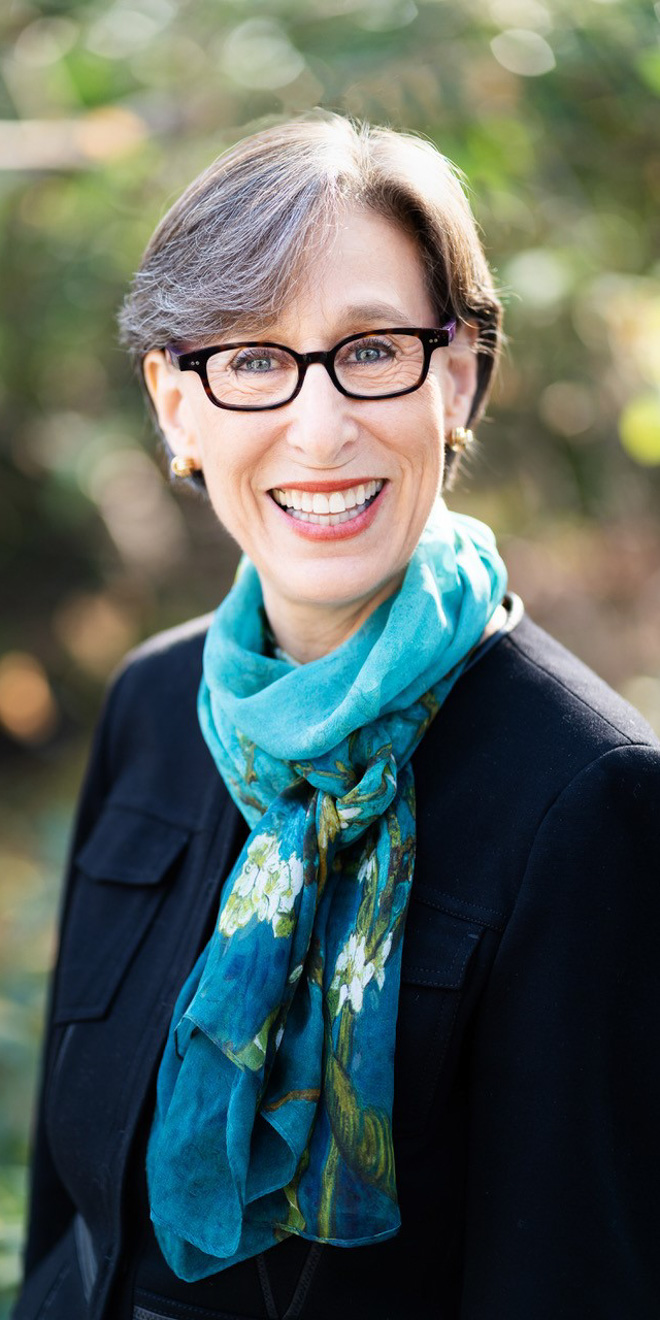In her new podcast “LEAP!”, released Wednesday, Management, Science and Engineering professor Tina Seelig Ph.D. ’85 invites Stanford alumni to share insights into launching a career. As part of Stanford Technology Ventures Program’s (STVP) ECorner, which gives students access to entrepreneurship strategies and resources, Seelig discusses how she encourages students to harness specific skills in order to expand their opportunities — or “create” luck.
With nearly 2.5 million views, Seelig’s TED Talk, “How to Catch the Winds of Luck,” draws an analogy between luck and the wind. Like luck, she reasons, the wind is always blowing and “sometimes [it is] calm, and sometimes it blows in gusts, and sometimes it comes from directions that you didn’t even imagine.” Seelig discusses the importance of creating and seeking luck in everyday experience by taking small risks, expressing appreciation to others through thank you notes and embracing unique entrepreneurial ventures.
In the theme of taking risks and welcoming unique ideas, during a conference, Seelig was introduced to the idea of a failure resume — a resume which highlights all of one’s biggest “screw ups,” according to the STVP website— which she has incorporated into her classes and international bestseller, “What I Wish I Knew When I Was Twenty.” In her autumn quarter class MS&E 177: Creativity Rules: Inventing the Future, Dr. Seelig assigned her students the same task of writing a failure resume to “help them reframe their own experiences” and have an account of their failures in an attempt to grow from their shortcomings and find opportunities for learning.
Seelig continues to implement these concepts in her winter course, MS&E 277: Unlocking Innovation in Prison, where students explore the intersection between criminal justice and technology. Working with a program known as The Last Mile, based in the San Quentin Prison, Seelig helps teach prisoners skills such as coding and entrepreneurial thought and encourages her students at Stanford to get involved. She mentioned how the students in her class can “create” luck by seeking to learn marketable computer science and entrepreneurial skills and glean knowledge from people of differing backgrounds.
“The prompts in the past have been things like ‘secrets’ or ‘death’… and the teams have to frame a problem around that topic,” Seelig told The Daily. “So, I had to come up with a topic that would be appropriate for both the men in prison and the Stanford students, something that would be provocative for both sides and appropriate.”
The problems students chose were related to the topic of “time” included how to sustain relationships or engage with family events during time away or behind bars. Students from different backgrounds create luck and opportunities for growth by understanding how the concept of time affects them and their peers.
“Sometimes people were born into terrible circumstances, and sometimes, luck is a lightning bolt that hits us with something wonderful or something terrible,” Seelig said at the end of her talk. “But … if you’re willing to take some risks… you can build a bigger and bigger sail to catch the winds of luck.”
Contact Leily Rezvani at lrezvani ‘at’ stanford.edu.
This article has been corrected to reflect that LEAP! was released on Wednesday, not later in the week, and to reflect the correct stylization of the podcast’s title. This article’s headline has been corrected to reflect the correct spelling of Dr. Seelig’s name.
